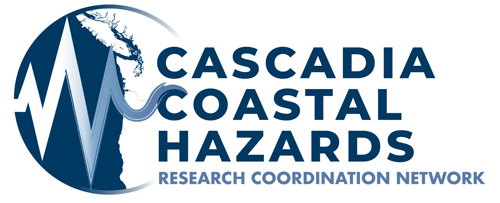Cascadia Coastal Hazards RCN Public Seminar
Thursday, November 04, 09:00 AM to 10:00 AM PDT
Jenny Suckale (Stanford University) – "Rethinking disaster risk mitigation for a changing world"
A virtual seminar of the Cascadia Coastal Hazards RCN, and co-sponsored by the CoPes HUB. The seminar is open to the public.
Presentation Abstract: Risk is commonly defined as the intersection of hazard, exposure, and vulnerability. Hazard quantifies the magnitude of a process causing disruption or damage; exposure captures the number of people or assets in the area affected by the hazard; vulnerability is most commonly defined as the susceptibility of a community to the impact of hazards. Traditional engineering approaches to reducing risk target exposure, but the cost-effectiveness of exposure-based risk mitigation depends on the predictability of the threat they attempt to protect against. Climate change presents a profound challenge to predictability because it entails unprecedented and possibly increasing uncertainty, including the emergence of new, previously unknown types of risks. In this talk, I briefly discuss four case studies that could have changed my thinking about how to approach disaster risk mitigation in a changing world. They highlight (1) the value of regional coordination, (2) the need to become more intentional about equity, and (3) the importance of adaptivity in risk mitigation. All of these case studies were co-produced with communities at risk and local decision-makers.
Speaker Biography: Jenny Suckale is Assistant Professor in Geophysics, Computational and Mathematical Engineering, and Environmental Engineering at Stanford University. Her research focuses on understanding disaster risk and resilience. She approaches this challenge both from a fundamental point of view by advancing our understanding of the processes that govern extreme events in different natural systems and from an applied point of view by working with private and public partners to increase community resilience using a scientific co-production approach. Her research group specializes in the development of customized mathematical models that are testable against observational data from a broad spectrum of scales. Their current research priorities span natural hazards like volcanic eruptions, climate hazards such as ice-sheet instability and permafrost disintegration, and hazards that arise from the interaction between natural processes and human interventions such as flooding in urban areas and induced earthquakes. Dr. Suckale was recently awarded the Presidential Early Career Awards for Scientists and Engineers, the highest honor bestowed by the United States Government on science and engineering professionals in the early stages of their independent research careers.

